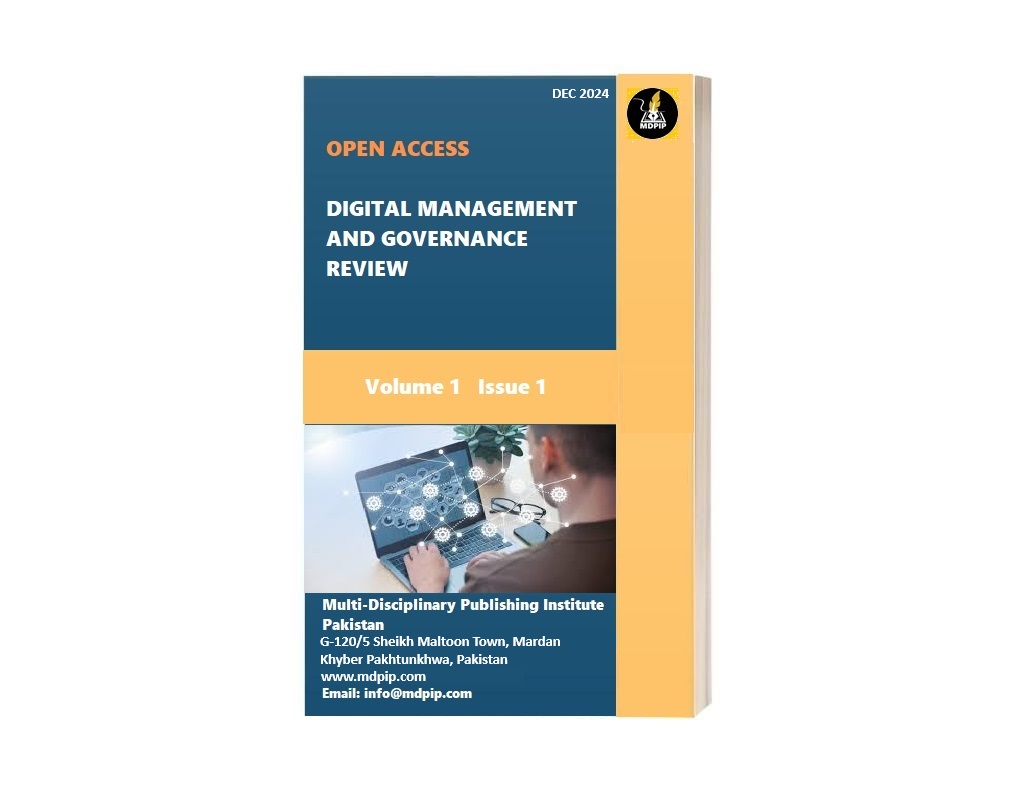Impact of User Participation in Computer Based Information System Development on the Use and User Problems
DOI:
https://doi.org/10.59644/oadmgr.1(1).38Keywords:
user Participation, Computer-based Information System Development, Use, User Problems, eBanking SectorAbstract
E-banking is the recent phenomenon that has revolutionized the banking system from conventional to online digital mode of transactions. This study examines the job of client interest in the dimension of utilization and client issues identifying with the computerization of banks. The objectives of the study was to measure the role of different computer related behaviors in the work environment; to compute the participation of users in the development of CBIS. The study intended to understand the impacts of user participation in CBISD on the use and problems of users in the office work; and to measure the levels of participation impacts on the use and user problems in digital work environment. The population of this study were all the banking staff working in different banks in Dera Ismail Khan. A pilot study was conducted to test the instrument as well as get data for sample size determination. A sample of 180 was determined for the main study. The study reported that user participation is significantly associated with the user of computer as well as user problems. Likewise, the R-square value is 0.395 which shows the overall effect of user participation on the dependent variable ‘use of computers. Similarly, the Beta value of user participation 0.451 further strengthens its relationship with the use of computers. The future research can replicate the same study with same samples in different city to further understand the change of causal linkage between factors and can examine its influence on intention to continue online banking services. The current study can be further be extended by classifying the samples as gender based on their online banking experience and to examine the change in intention to continue with online banking services. Factors that affect intention to continue online banking services that are considered important in one culture might be less important in another culture. Hence, future research could apply the same research framework by incorporating cultural factors in other countries to get broader perspective.






